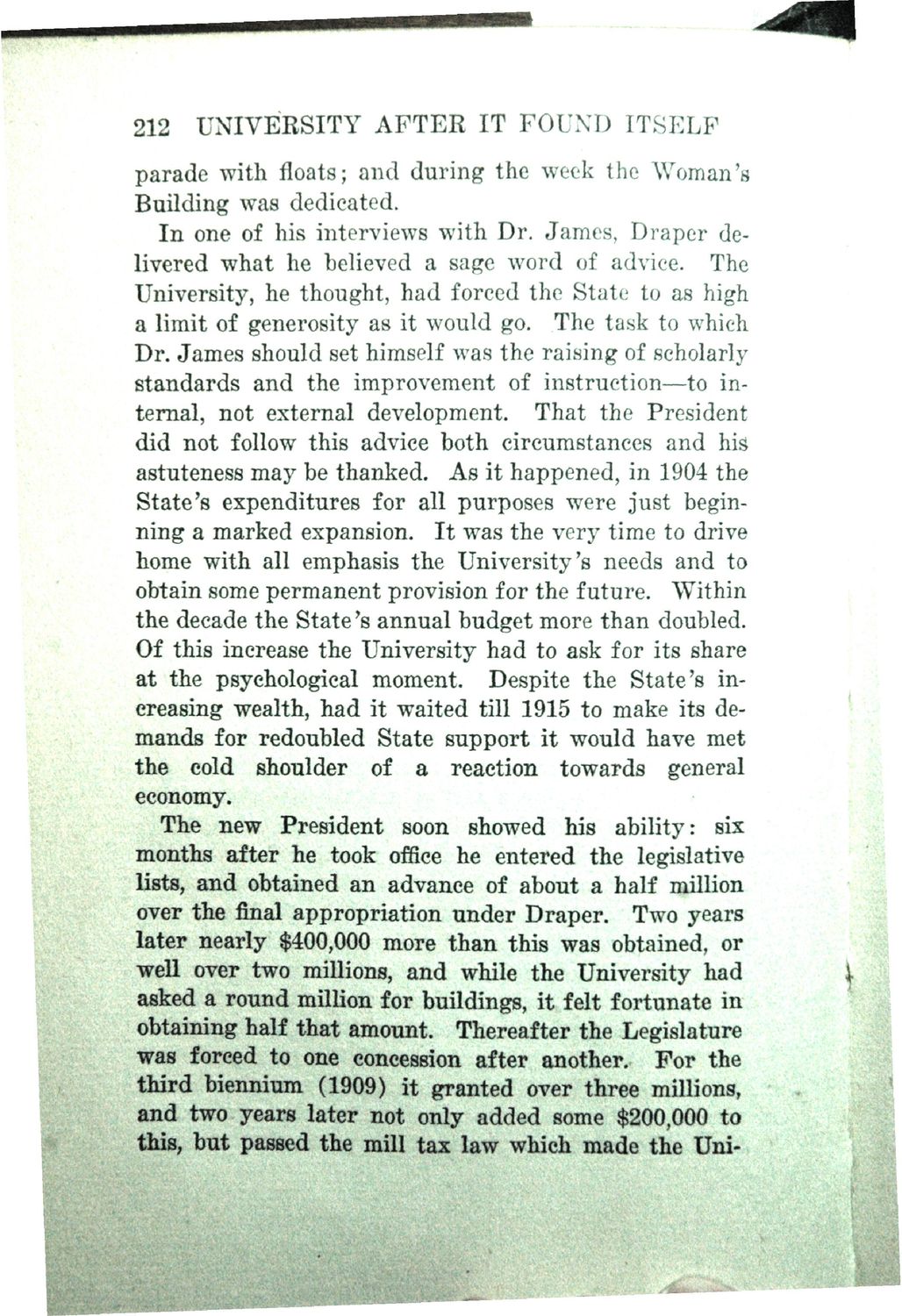| |
| |
Caption: Book - History of the University (Nevins)
This is a reduced-resolution page image for fast online browsing.

EXTRACTED TEXT FROM PAGE:
212 UNIVERSITY AFTER IT FOUND ITSELF parade with floats; and during the week the "Woman's Building was dedicated. In one of his interviews with Dr. James, Draper delivered what he believed a sage word of advice. The University, he thought, had forced the State to as high a limit of generosity as it would go. The task to which Dr. James should set himself was the raising of scholarly standards and the improvement of instruction—to internal, not external development. That the President did not follow this advice both circumstances and his astuteness may be thanked. As it happened, in 1904 the State's expenditures for all purposes were just beginning a marked expansion. It was the very time to drive home with all emphasis the University's needs and to obtain some permanent provision for the future. Within the decade the State's annual budget more than doubled. Of this increase the University had to ask for its share at the psychological moment. Despite the State's increasing wealth, had it waited till 1915 to make its demands for redoubled State support it would have met the cold shoulder of a reaction towards general economy. The new President soon showed his ability: six months after he took office he entered the legislative lists, and obtained an advance of about a half million over the final appropriation under Draper. Two years later nearly $400,000 more than this was obtained, or well over two millions, and while the University had asked a round million for buildings, it felt fortunate in obtaining half that amount. Thereafter the Legislature was forced to one concession after another.,|For the third biennium (1909) it granted over three millions, and two years later not only added some $200,000 to this, but passed the mill tax law which made the Uni- flj
| |